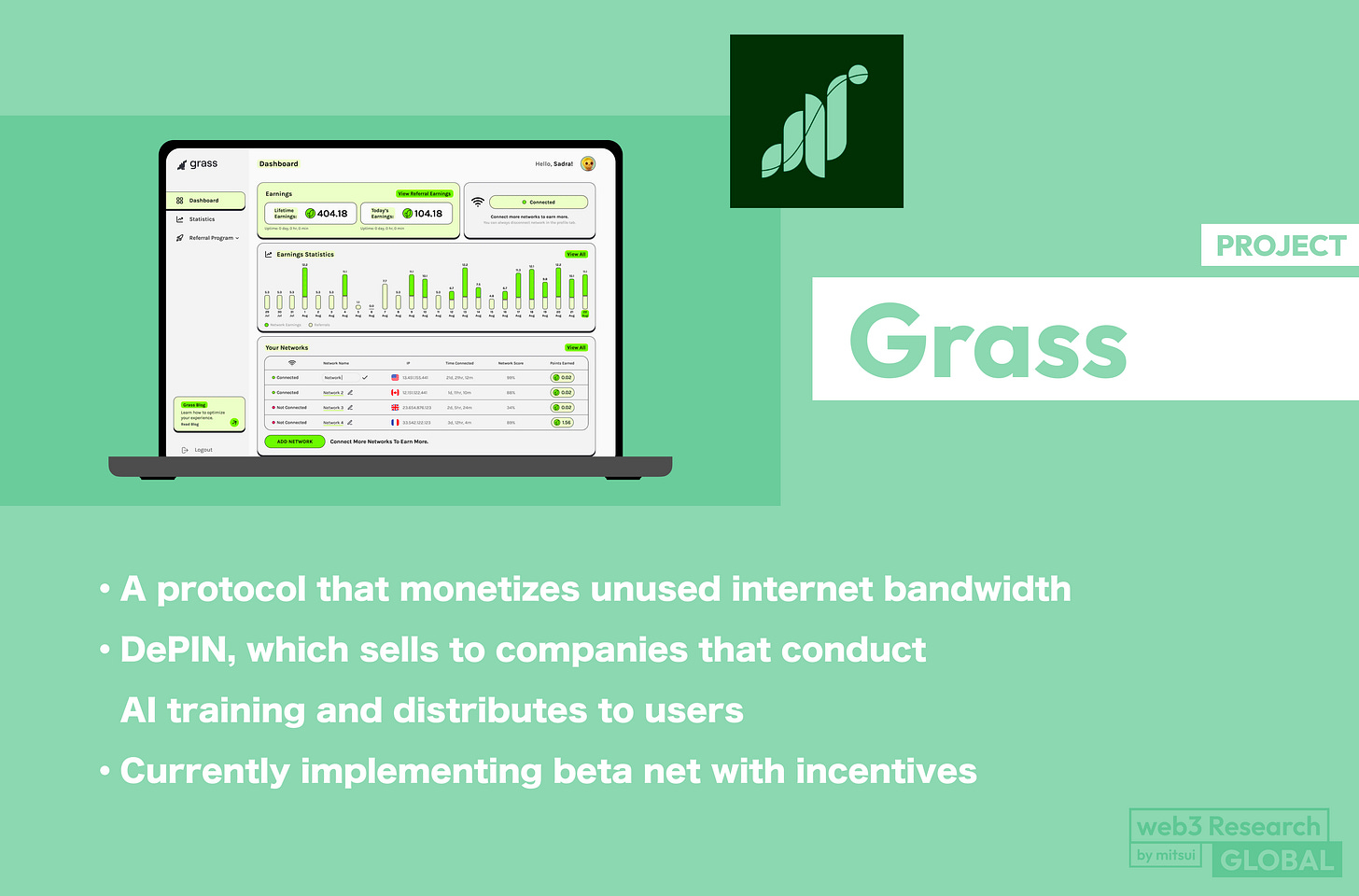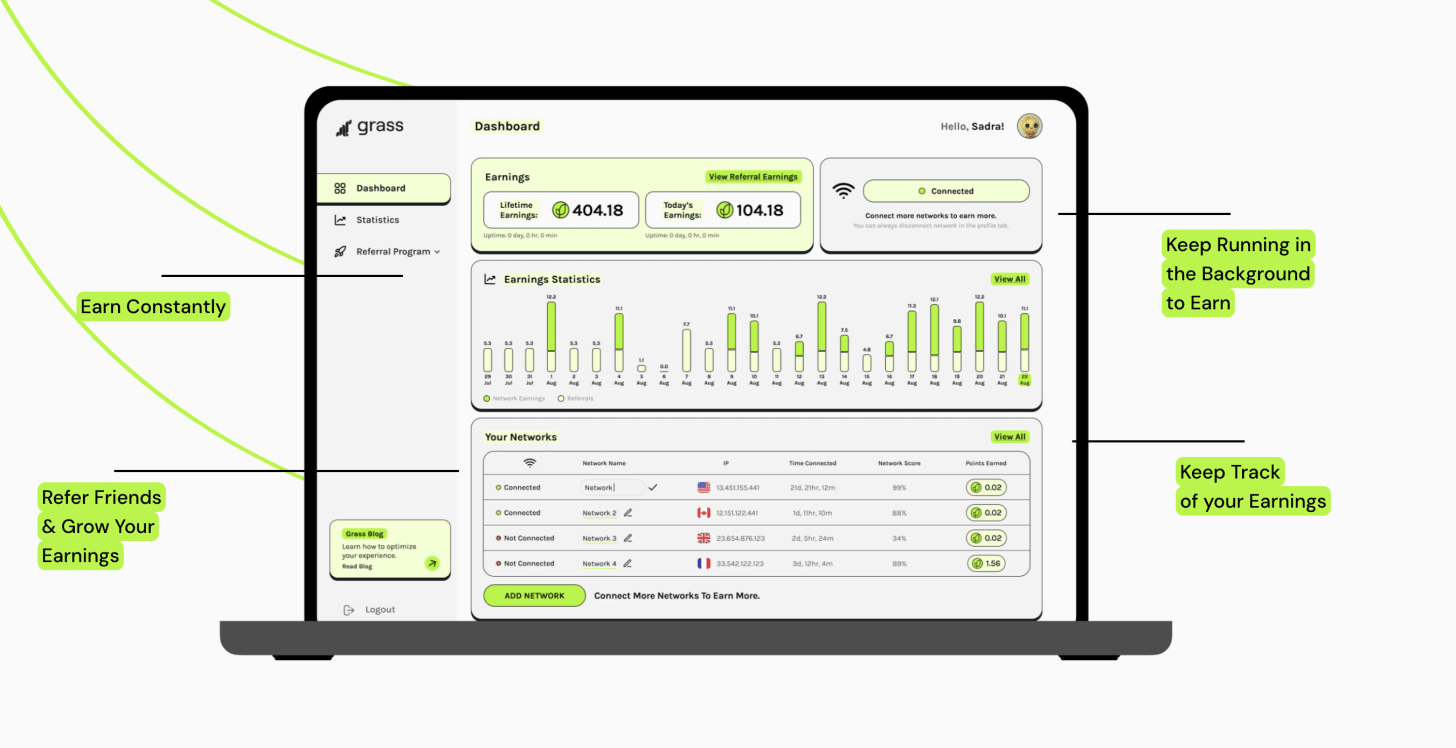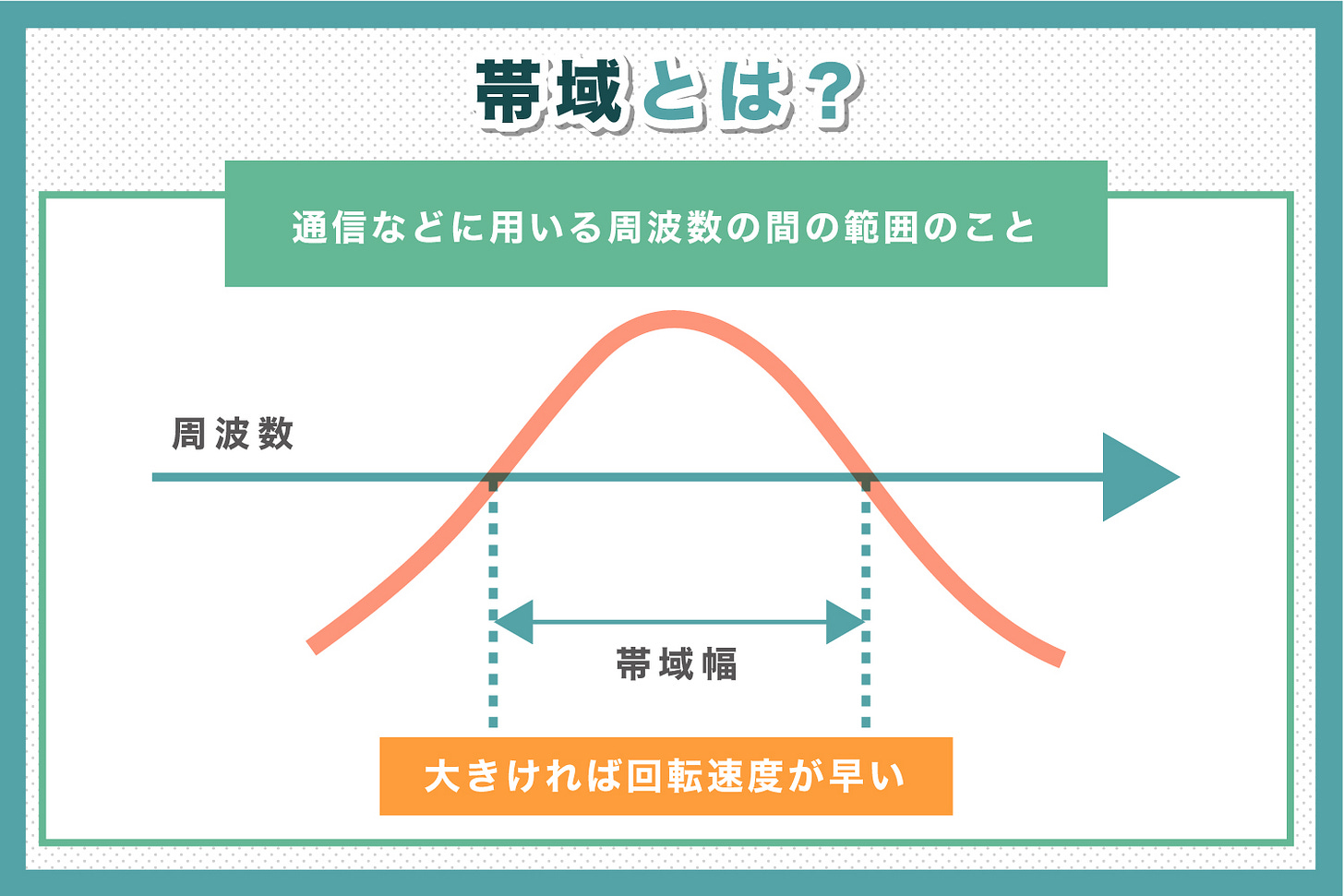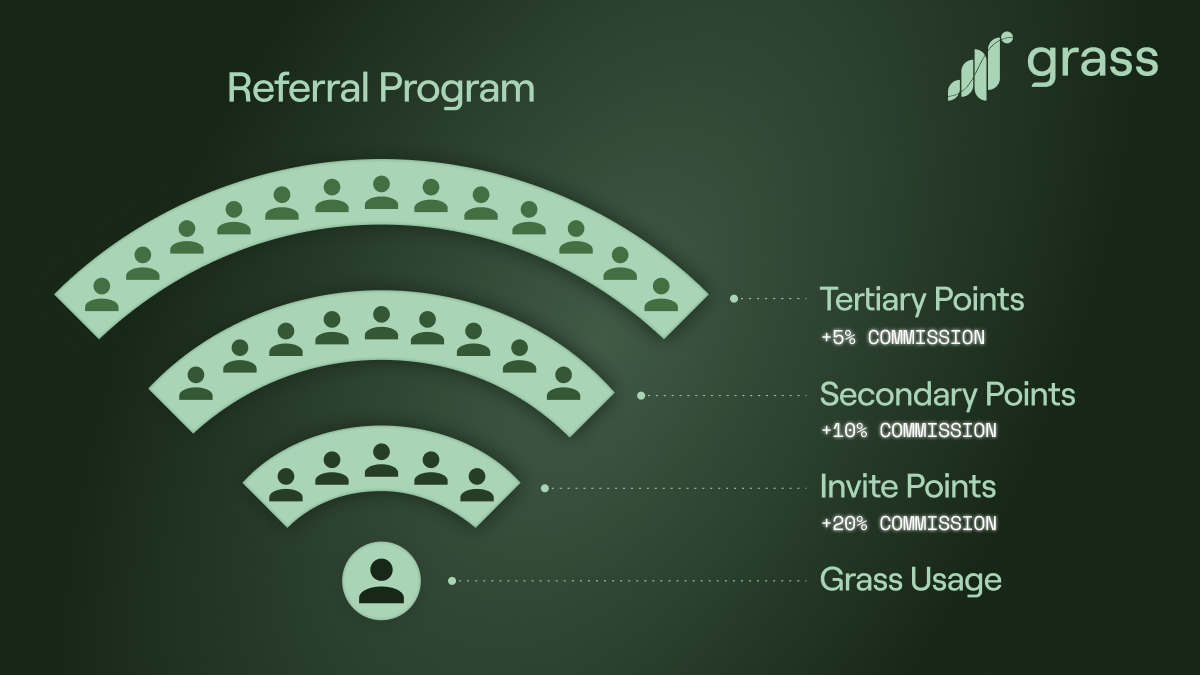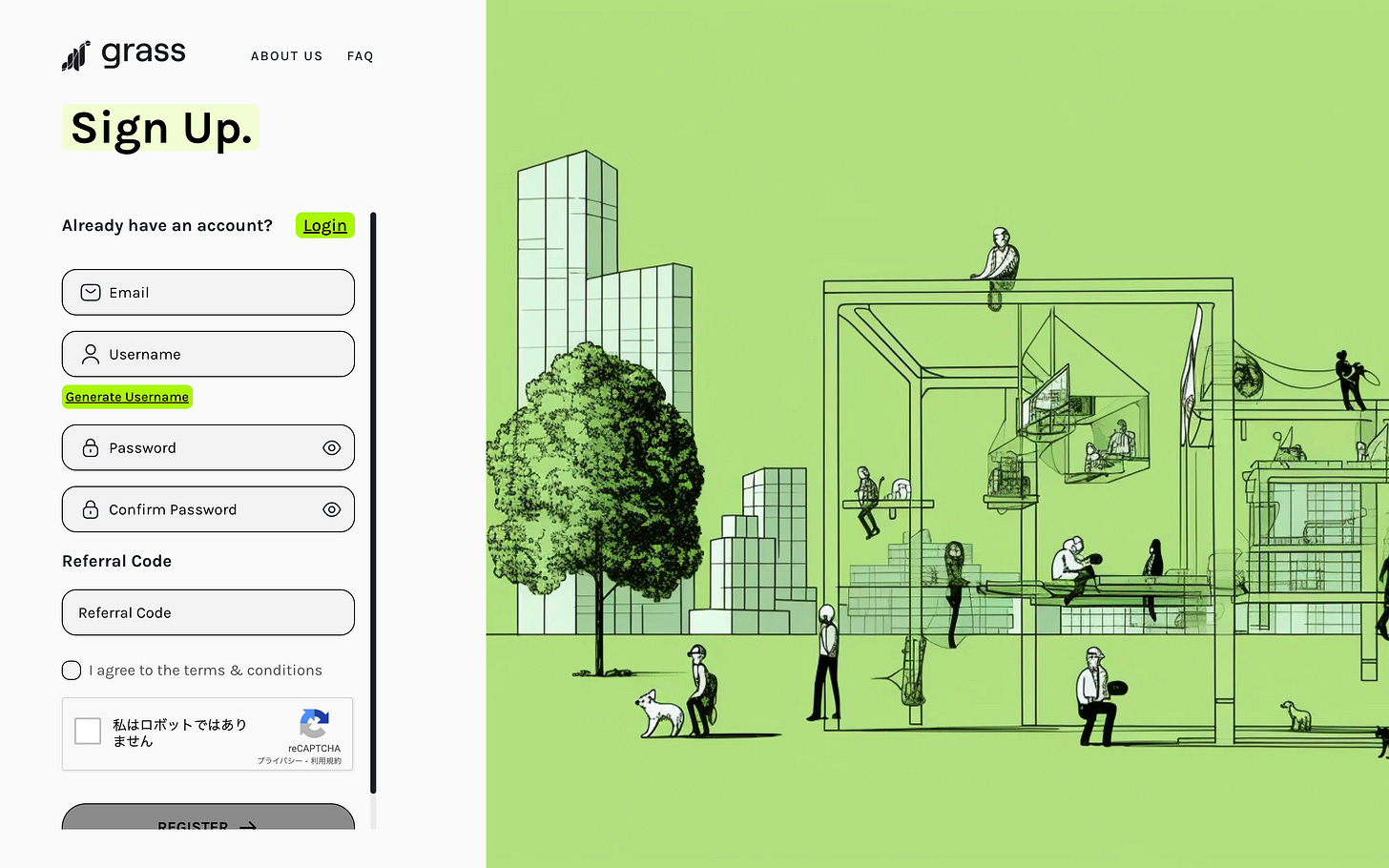【Grass】 A protocol that monetizes unused internet bandwidth / DePIN, which sells to companies that conduct AI training and distributes to users / Currently implementing beta net with incentives
"Grass" is a protocol that allows users to monetize unused internet bandwidth.
Good morning.
I am mitsui, a web3 researcher.
Today, I researched about "Grass".
Table of Contents
1. Overview | What is Grass?
-Mechanism
-Current situation
2. Transition and Outlook | Incentivized Beta Network in Progress!
-Usage and Point Program
-Raised 3.5 million dollars in seed round funding
3. Analysis | DePIN is the Next Generation of X to Earn
Overview | What is Grass?
"Grass" is a protocol that allows users to monetize their unused internet bandwidth. It is a decentralized project that collects and sells unused internet bandwidth while distributing rewards to users, making it a type of DePIN project.
The idea is to be able to sell the remaining gigabytes on your smartphone to someone else. By selling the unused bandwidth while using the internet, you can passively earn income while still being able to use the internet as usual.
◼️Mechanism
To fully understand "Grass," it is necessary to have a deep understanding of internet communication, such as proxies. Here, we will provide an explanation that allows you to grasp the overview. Please refer to the documentation and related terms for a 100% accurate understanding. We will try to explain using as few technical terms as possible.
"Grass" is a protocol that allows users to monetize and sell the bandwidth they don't usually use. Everyone has a certain amount of bandwidth for internet connection each month, but most people don't fully utilize it.
Bandwidth determines the capacity of an internet connection to transmit information. Bandwidth can be compared to water flowing through a pipe. The diameter of the pipe represents the bandwidth of the connection. The wider the pipe, the more water it can carry at once, and the faster it can flow.
With Grass, you can monetize unused bandwidth. If you are paying for unlimited home WiFi, there is a high chance that there is unused bandwidth, which can be easily sold to generate passive income.
So, who would purchase unused bandwidth and for what purpose?
The answer is companies dealing with big data, particularly for training AI.
Typically, when conducting internet communication, connections are made using location-based proxies. For example, global e-commerce companies may want to check the display of their advertisements and SEO rankings from IP addresses in various regions. This allows for data collection and marketing analysis of competitors.
Furthermore, by utilizing unused internet bandwidth, you can perform tasks such as market research and web scraping for AI training.
AI training is especially anticipated, and Grass refers to its own protocol as "The Oracle for Decentralized AI," representing it as a data layer for AI. Here, AI includes not only LLM development companies like OpenAI but also big data analysis for globally expanding service companies mentioned above.
Nowadays, collecting and analyzing big data has become essential in business activities. Therefore, we access the internet from various regions using IP addresses and gather information. In order to purchase the unused bandwidth of each user's internet, we pay money. Grass distributes those funds to the users.
Furthermore, even if Grass provides internet bandwidth, personal data will not be accessed or used. Grass and the purchasers of data cannot access any data on the computer. You can use Grass with peace of mind knowing that your personal data is securely protected.
◼️Current Situation
In fact, even in the current situation, this user's unused bandwidth exists, but the user themselves are not aware of it. Therefore, Grass is a protocol that has the potential to monetize assets that the user was not even aware of.
In addition, the current centralized proxy services often sell and monetize this data without the user's knowledge. Users continue to pay high internet fees without knowing these facts.
Grass solves this problem.
Transition and Outlook | Incentive-based Beta Net Launching!
◼️ Usage and Point Program
Grass started around June 2023. The beta net's point program started in July and is currently ongoing. Points are expected to be replaced by tokens in the future, and you can earn points by using Grass and inviting friends.
The usage is simple. You can either download the Chrome extension or the app if you are using Android. Currently, a referral code is required. However, many people distribute referral codes on Discord, so you can access it there to obtain a code and complete the user registration.
Just by downloading, your regular internet usage will be monetized. Additionally, in January 2024, the point program will be improved and the concept of Tiers will be introduced based on the amount of referrals. By inviting more people, you can increase your Tier and earn more points.
◼️ Raised $3.5 Million in Seed Round
On December 20, 2023, Wynd Network, the development company behind Grass, announced that it has raised $3.5 million in a seed round led by Polychain Capital and Tribe Capital. Following a pre-seed round led by No Limit Holdings, this seed round brings Wynd's total funding to $4.5 million.
This funding will be strategically utilized to strengthen Grass' technical infrastructure, expand the network of nodes, and improve the data verification process.
Research | DePIN: The Next Generation X to Earn
This is a research analysis.
Grass is a very interesting service. I will also register and try using it (I have tried to register multiple times, but due to a network error, I couldn't register while writing this article. I plan to try again after I finish).
In the description of Grass, there is a phrase "monetizing assets that users are not aware of," and I think this is an ideal user experience. DePIN is an area that holds the potential to achieve a decentralized sharing economy. The sharing economy is a business where users can monetize assets that they are not aware of.
Airbnb monetizes vacant rooms in homes, while Uber monetizes everyday transportation. Many people are now exclusively engaged in these activities. However, the initial concept and philosophy of the sharing economy was that "your dormant assets are valuable assets to someone else, and by matching them, it becomes a win-win relationship for both parties."
Internet development is undoubtedly the background for this realization. In addition, it relies on trust in the platform that fulfills the matching function and trust through the review and reputation system.
DePIN aims to maintain this trust relationship while replacing trust in the platform with trust in technology. This will enable trustless operation and minimize the presence of intermediaries.
Furthermore, when we hear about monetization through blockchain, we think of X to Earn services, but they have been criticized as Ponzi schemes, raising doubts about the establishment of a sustainable ecosystem.
On the other hand, the DePIN project raises funds from external sources with real demand and distributes them to users, so it does not become a Ponzi scheme.
Therefore, it holds great potential as an update to the sharing economy and X to Earn.
Grass has already released an app for Android, and with the upcoming release of the iOS app, when more users start using it, it seems that a world where all users can monetize will be realized. I am very excited about this, so I will use it myself and follow its expansion.
That concludes today's research on "Grass".
Disclaimer:I carefully examine and write the information that I research, but since it is personally operated and there are many parts with English sources, there may be some paraphrasing or incorrect information. Please understand. Also, there may be introductions of Dapps, NFTs, and tokens in the articles, but there is absolutely no solicitation purpose. Please purchase and use them at your own risk.
About us
A web3 newsletter delivered in five languages around the world. We deliver various articles about web3, including project explanations, news and trend analysis, and industry reports, every day. You can subscribe for $8 per month ($80 per year) and receive research articles that took 100 hours to complete every day.
Author
mitsui
A web3 researcher. Operating the newsletter "web3 Research" delivered in five languages around the world.
Contact
The author is a web3 researcher based in Japan. If you have a project that is interested in expanding to Japan, please contact the following:
Telegram:@mitsui0x
*Please note that this newsletter translates articles that are originally in Japanese. There may be translation mistakes such as mistranslations or paraphrasing, so please understand in advance.



